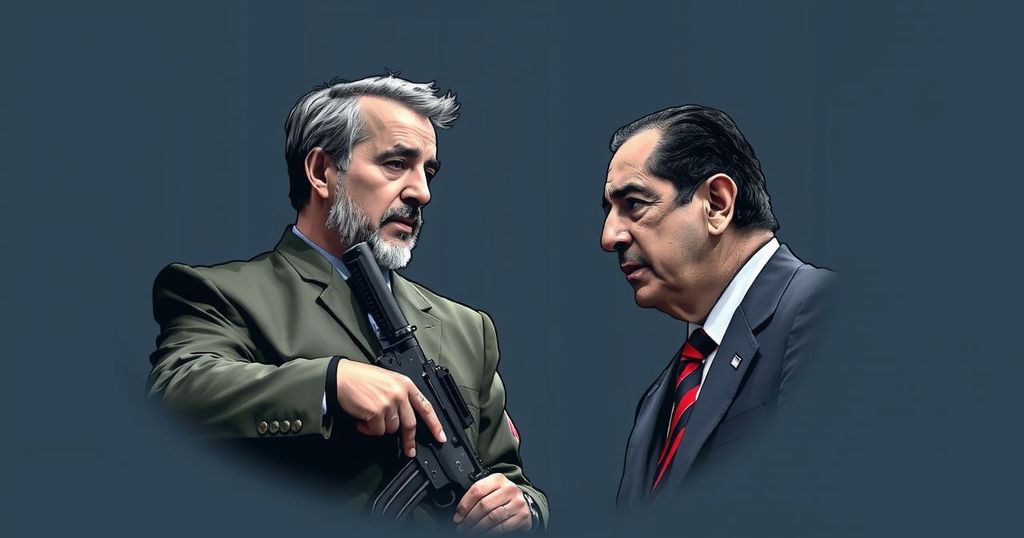U.S. mediator Amos Hochstein’s efforts to secure a ceasefire between Hezbollah and Israel face criticism for potentially benefiting Hezbollah and Iran. Key debates focus on Israel’s right to respond to violations, with significant financial aid destined for Lebanon’s military raising concerns about support for Hezbollah. Meanwhile, U.S. actions in the UN and Senate underline ongoing complexities in regional diplomacy and security.
In a recent diplomatic effort, U.S. mediator Amos Hochstein visited Israel as part of ongoing negotiations aimed at establishing a ceasefire between Hezbollah and Israel. Critics, however, are raising concerns that such an agreement would inadvertently strengthen Hezbollah and Iran’s influence in the region. Following discussions with Lebanon’s Parliament Speaker Nabih Berri, Hochstein noted progress had been made, but there remains contention regarding Israel’s ability to respond to any ceasefire violations by Hezbollah.
Hezbollah’s leader, Naim Kassem, asserted that Israel should not be allowed to retaliate unilaterally against any infractions. Conversely, Israeli Foreign Minister Gideon Sa’ar firmly stated that Israel must retain the right to act in response to violations to ensure national security. He emphasized the necessity of preventing Hezbollah from re-establishing its military capabilities in Lebanon, which poses a direct threat to northern Israel.
Amidst these discussions, analyst Lee Smith expressed skepticism about the deal’s implications, warning that it would primarily benefit Hezbollah while ultimately costing American taxpayers millions in military aid to Lebanon. Smith emphasized that recent proposals suggest an additional $400 million in funding for the Lebanese Armed Forces, which he argues have been compromised by Hezbollah’s influence, effectively transforming the financial support into a lifeline for the militant group.
While negotiations unfold, attempts by the United Nations Security Council to achieve a ceasefire in Gaza have been stalled, with the U.S. vetoing an unconditional resolution. U.S. representative Robert A. Wood indicated that any ceasefire must consider the release of hostages currently held by Hamas. Israeli officials argue that Hamas could halt hostilities immediately by returning hostages and disarming. Additionally, an initiative within the U.S. Senate aimed at ceasing offensive weapon sales to Israel garnered significant opposition, reflecting strong bipartisan support for Israel’s right to defense and national security.
The ongoing tensions between Hezbollah and Israel are deeply rooted in historical conflicts and geopolitical dynamics, whereby Hezbollah, an Iran-aligned militant group, has threatened Israeli security, particularly in northern territories. The involvement of the United States as a mediator highlights its strategic interest in stabilizing the region and maintaining its alliances. Recent discussions of a ceasefire arise amidst a broader context of violence, particularly involving Hamas and the ongoing conflict in Gaza, which complicates the landscape of negotiations. Financial aid and military support for Lebanon’s armed forces must be scrutinized due to Hezbollah’s infiltration of these institutions, raising ethical concerns regarding the use of American taxpayer money.
The diplomatic efforts led by the Biden Administration to broker a ceasefire between Hezbollah and Israel are met with significant skepticism from critics who argue that such a deal ultimately favors Iran and Hezbollah. The insistence on limiting Israel’s capabilities to respond to violations highlights the tensions inherent in ceasefire negotiations. As funding for Lebanon’s military increases, concerns mount over inadvertently supporting a group aligned with Iranian interests. The U.S. continues to navigate complex geopolitical challenges in the region, balancing the need for security and the implications of its foreign policy decisions.
Original Source: www1.cbn.com






